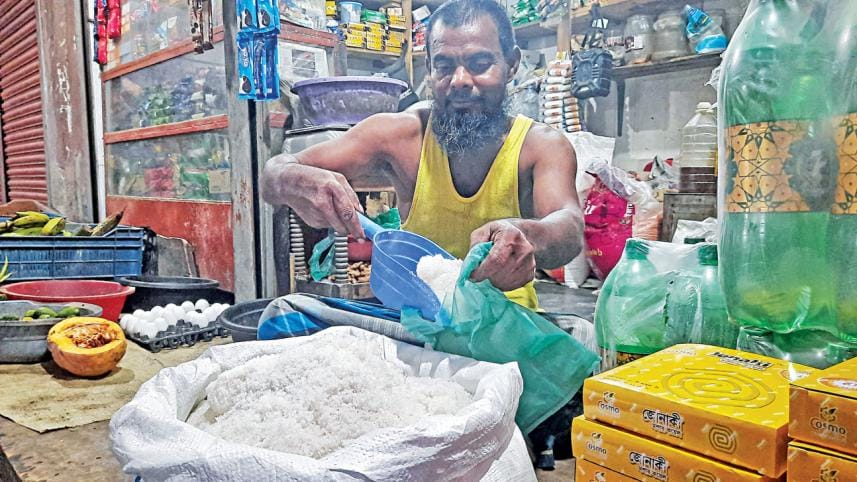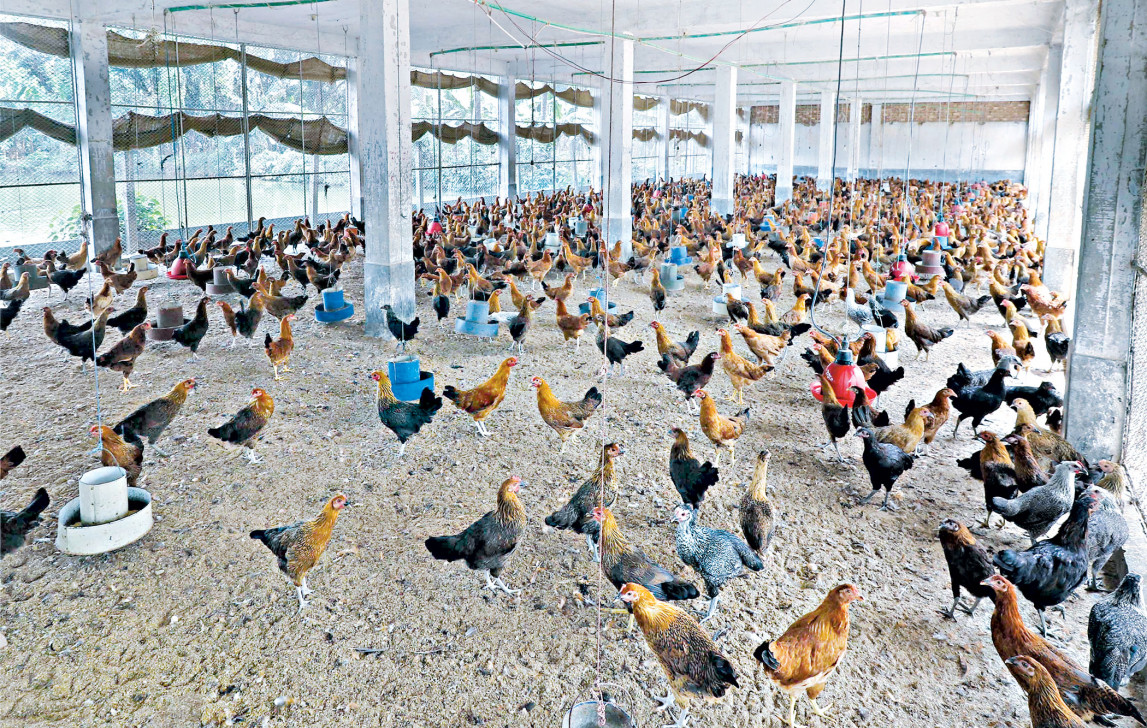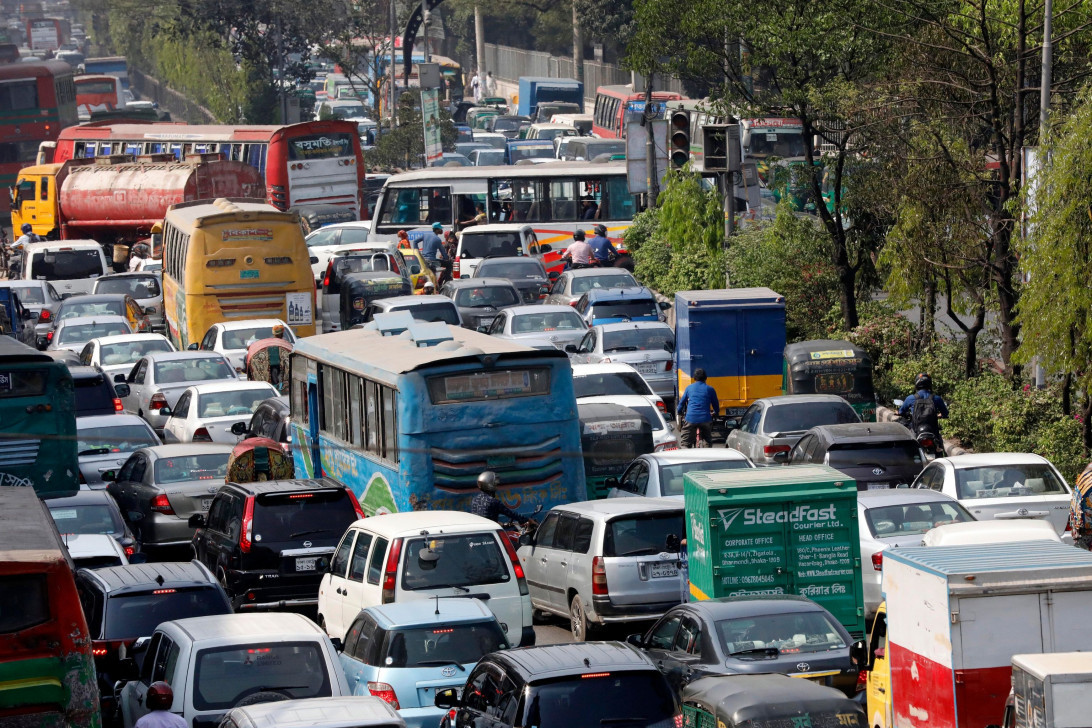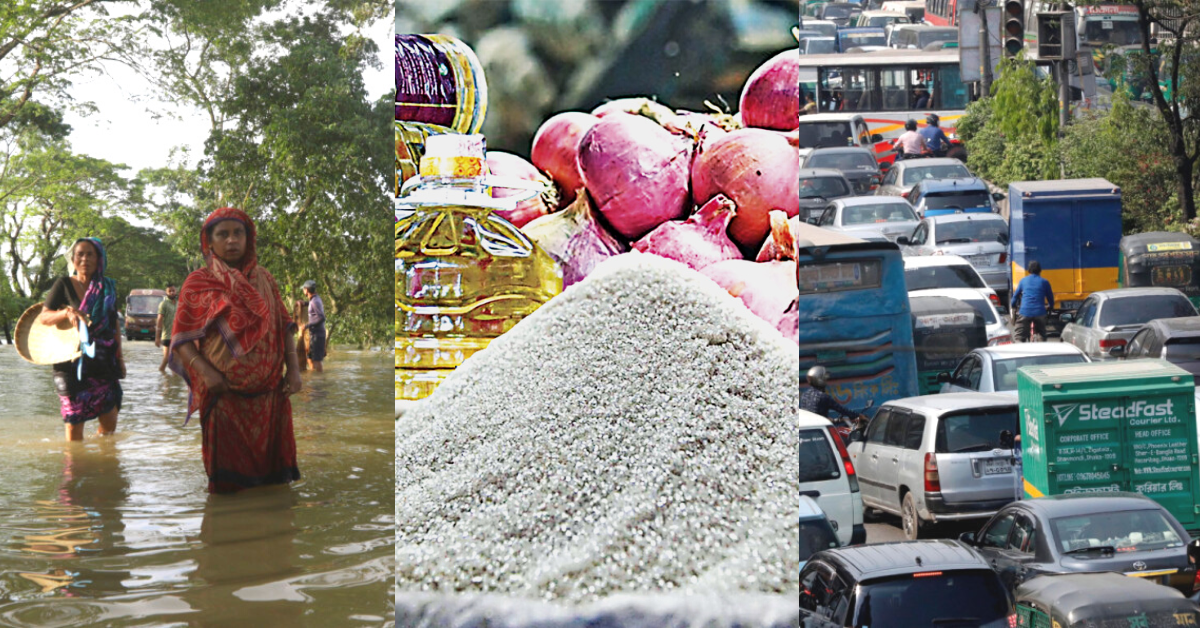An ode to local economies

One of my morning walks takes me to a women's medical college and hospital which also has an abundance of vegetable gardens and fruit trees; out of view is a cow shed. From a small stand, farmers sell fresh milk, vegetables and mangoes. On Friday mornings, I visit a bigger farmers' market, this one run by farmers coming from a village outside of Dhaka. In addition to vegetables, bananas, papayas and milk, there are duck eggs and small local chicken eggs.
Most of my trips within the city are in my neighbourhood, easily accessible by foot or by rickshaw. Along the way, I pass a proliferation of tiny local shops and an array of vendors selling nearly everything imaginable. When it's hot, there are people selling coconut water; in the winter, the pitha stands are abundant.
In the United States, where I'm from, it is possible to go from birth through death without ever purchasing a single product or service from a small, independent business. So when people ask me if I'm happy to be in Bangladesh, it is not difficult to say yes. Yes, despite the heat, pollution, and traffic congestion. Yes, despite the cacophony of horns. Because I truly value local economies and local cultures.
Nor am I alone. This year, as for the past four years, grassroots groups across the world celebrated World Localisation Day last week. Given all that's wrong with our societies and our planet, more than a hundred groups and networks united to showcase the healing power of local economies and local communities.
The solutions being put forth are as varied as the organisations supporting them under the umbrella of the international NGO Local Futures. There are groups active in holistic education, in sustainable agriculture, and those campaigning for strong local governance and the control of unaccountable transnational corporations currently supported by trade and investment treaties. What they have in common is the recognition that strong local economies can help heal our planet and our societies.
These are organisations that believe in interactions, not just transactions – in shortening the distance, both physical and metaphorical, between producers and consumers. They are showing that there is an alternative to our profit-driven economies that are currently dominated by transnational corporations and big banks. And that solution lies in local communities and local economies.
According to Helena Norberg-Hodge, convenor of the World Localisation Day campaign, "Globalisation has failed us. It has concentrated wealth and power in the hands of unaccountable corporations and accelerated resource consumption and pollution. And now, as the cost of living skyrockets across the world, people are realising the current economy is actually impoverishing the vast majority – middle classes included."
The growing international movement for localisation manifests itself in a number of ways, including farmers' markets, community gardens, local business alliances, local banks and credit unions. Activists and organisers are demonstrating the potential to have strong local economies without generating more pollution and environmental destruction. In fact, we can have more jobs while actually restoring our damaged environment.
It is easy to feel hopeless in the face of global crises. But as those who read my columns know, I am a relentless optimist. It is easy to be one when positive signs abound. Every child I see grinning as he or she races by on a bicycle, every shoe repairman exchanging a few friendly comments with his customer, every woman smiling and waving at me from over her rickshaw van loaded with pineapples, reminds me of the resilience of local communities and the vast potential of local economies.
It is tempting to be dazzled by the promises of economic growth, development, and globalisation. It is pleasant to believe that with rising incomes we can say goodbye to the many problems that plague our country. But it is also vital to remember that not all change is progress; that not all gains outweigh the costs; that sometimes we possess something too valuable to let it be destroyed.
Wherever the future takes us, let's be sure that we shape it in partnership with, rather than in destruction of, our local economy and local communities.
Debra Efroymson is executive director at the Institute of Wellbeing, Bangladesh, and author of 'Beyond Apologies: Defining and Achieving an Economics of Wellbeing.'




 For all latest news, follow The Daily Star's Google News channel.
For all latest news, follow The Daily Star's Google News channel. 



Comments